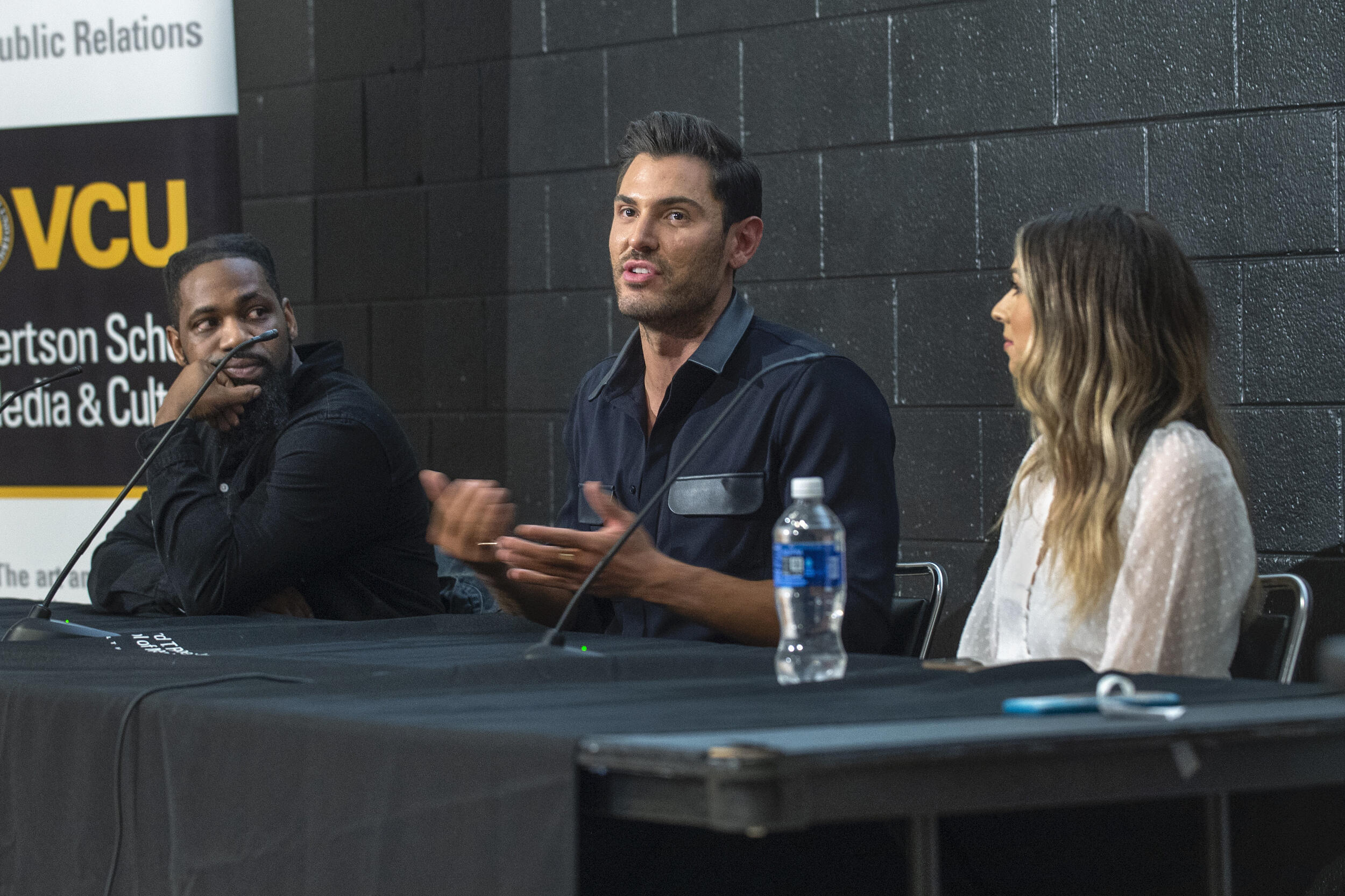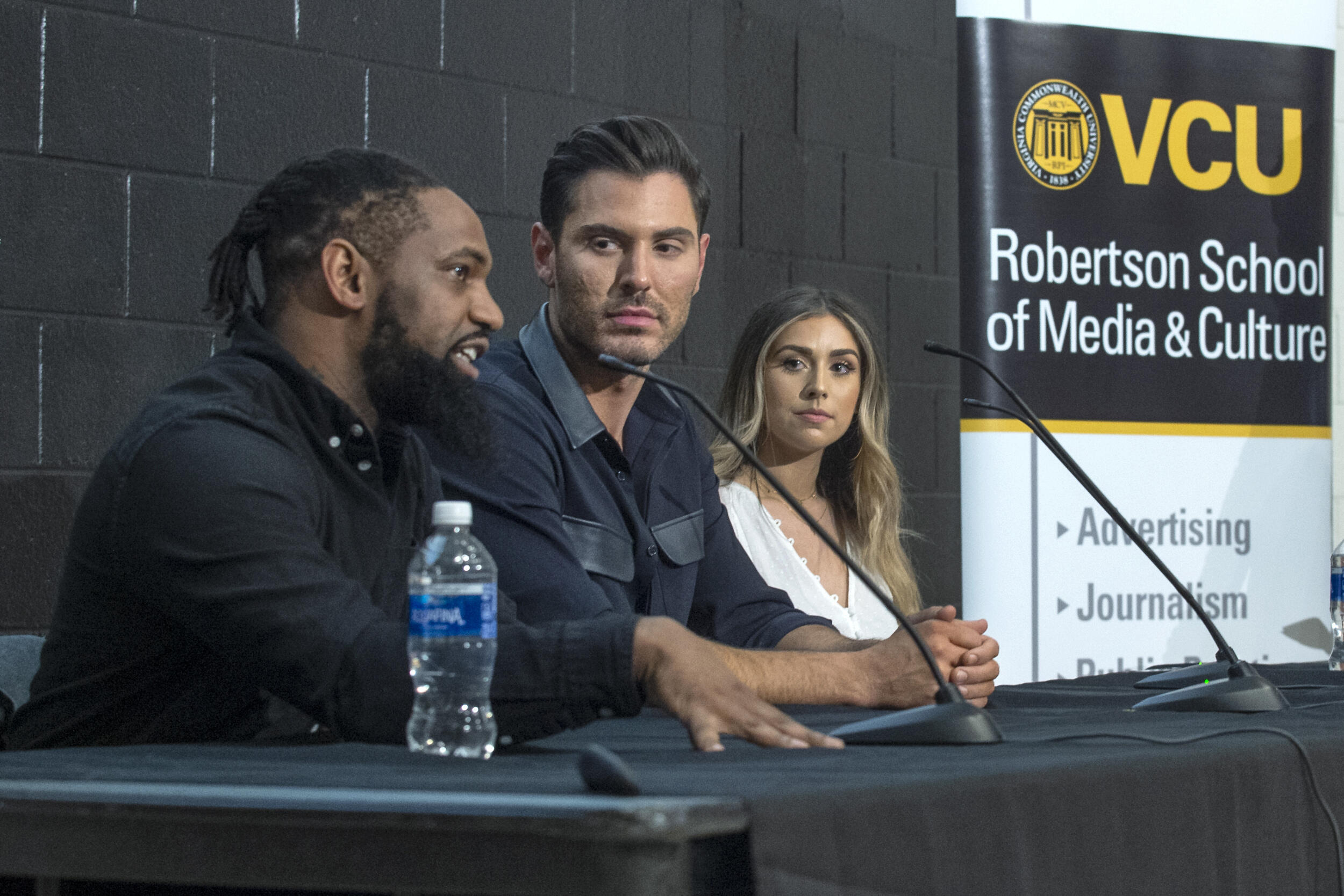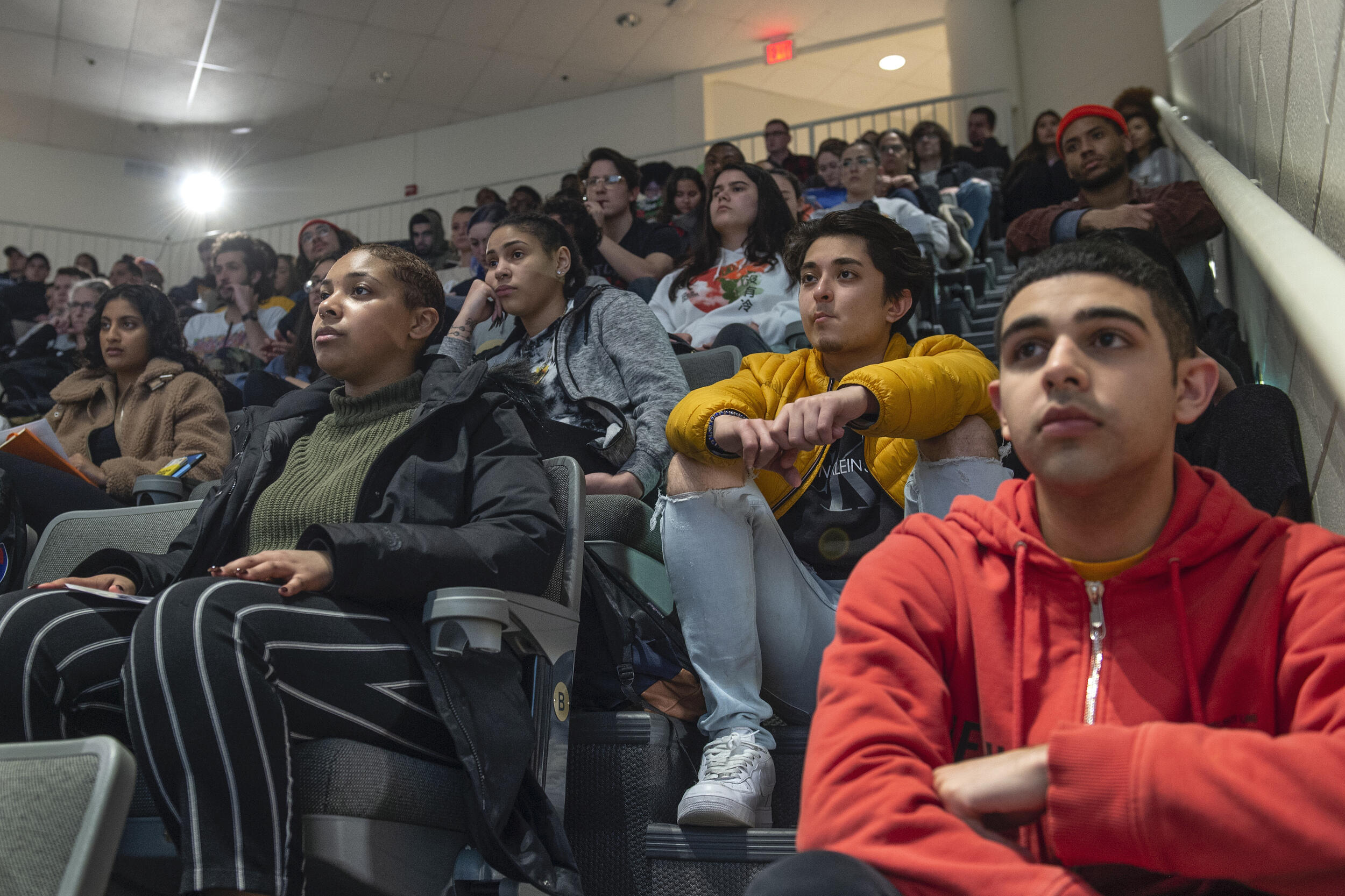
Feb. 26, 2020
‘I’m on TikTok guys, so follow me!’: VCU alumni offer a peek into life as an influencer
Joey Zauzig, Kait Curnow and Nickelus F are part of an industry diverting millions of dollars from traditional advertising. In the worlds of fashion, beauty and hip-hop, they wield massive influence.
Share this story
Joey Zauzig was working in public relations for Tommy Hilfiger in New York City when he decided to quit his day job and become a full-time luxury lifestyle influencer. That was nearly four years ago, and since then he has amassed 132,000 followers on Instagram and has landed deals with brands such as Ralph Lauren, Louis Vuitton, Express and H&M.
“I feel like being an influencer now, it’s not just about [posting] a pretty picture or going on free trips or whatever it might be,” Zauzig said. “It’s more about being yourself and showing people the life beyond wherever you might be in your own life.”
Zauzig was one of three social media influencers featured Tuesday evening at an event, “The Influencer Movement: How Vloggers, Bloggers and Social Media Celebrities Influence the Masses,” sponsored by the Richard T. Robertson School of Media and Culture in the College of Humanities and Sciences at Virginia Commonwealth University.
Alongside Zauzig was Kait Curnow, a beauty and fashion influencer who has worked with VICI, Ulta Beauty and Maybelline; and Nickelus F, an underground rap influencer who has worked with Pharrell Williams and Drake, as well as streetwear brand 10.DEEP. All three graduated from VCU’s Robertson School.
Hosting the panel discussion was adjunct professor Hailey Spencer, who teaches the Robertson School’s course Influencer Relations, which is one of the few such courses in the country. The course presents strategies and best practices for identifying and cultivating strategic relationships with influencers, as well as how to apply their influence to a larger communications strategy.
“What is an influencer? They are flown in by designers around the world. They can charge tens of thousands of dollars for an Instagram post,” Spencer said. “Who are these people? I think the defining term for an influencer is someone who has an active following in a particular niche. So you might expect someone in fashion, for example, to have a much higher following than someone who is into, I don’t know, vintage car collecting.”
Certain influencers have an unfathomable reach, she said. One influencer, MrBeast, has 30 million followers on YouTube alone. For comparison, Spencer noted, the population of Australia is 24.6 million. Brands are recognizing that influencers need to be part of their public relations and marketing efforts, diverting millions of dollars from traditional strategies.
“Vogue has a total circulation of 1.2 million. That’s their entire readership, that’s print and online,” Spencer said. “[Italian fashion influencer] Chiara Ferragni, she has 18.4 million followers on Instagram alone. If you look at all of her social media platforms, that number is well over 20 million. So how do we tie this into PR? How do we tie this into communications? Well, if I am a luxury fashion or beauty brand and I want to get my messaging out, I’m not going to Vogue anymore. I’m going to Chiara.”

Curnow, who is a social care analyst at CarMax by day and influencer and content creator for her site Make Chic Happen the rest of the time, launched her page for fun, but it has grown significantly in the past two years. She said she expects the influencer industry will continue to grow in the years ahead.
“I think it’s just getting started,” she said. “There’s a lot of brands [that] are just figuring out like, ‘What is this whole space?’ And it’s just a lot easier to get your products into the hands of consumers through influencers than through other forms of advertising.”
Nickelus F said he is a musician first and foremost and never set out to be an influencer. But he found himself gaining traction on social media in 2009 and 2010, and it grew from there.
“I’m a musician, so my goal was always to get as many people to know about my music as possible. … I wouldn’t necessarily call it a fight, but they don’t just necessarily come flock to you. You’ve got to convince people that you’re worth following as a rapper because there’s a million and one rappers,” he said. “Every follower is earned because in order for me to get followers, I’ve got to do shows, I have to put out music, I have to put out music videos that people resonate with, and just put out content that people personally identified with.”
“With me,” he said, “it’s always just been about this being my authentic self and hoping that people can rock with that to follow me. And over time I amassed a decent following, that other brands and other people took notice of, and realize that there’s a lot of engagement under his posts.”
How important are follower counts for influencers? All three panelists agreed that the numbers don’t matter much. Brands are much more interested in deeper metrics such as sell-through rates, engagement and how influential an influencer truly is.
“I feel like follower number does not matter, especially now. And I hear this across the board with different brands I meet with. It doesn’t matter about the followers. People need to forget about the number of followers. It’s about your engagement and your audience and how involved your audience is and the people that are listening to you,” Zauzig said. “To be an influencer, a real influencer who’s working and monetizing [content], you have to have an impact on people. Whether it’s people buying stuff or just people listening to your music, or you know beauty. If you have an impact on somebody, you are an influencer.”
More important than the number of followers is the strength of the community of the influencer and their followers, Curnow said.
“It’s definitely more about the community that you’ve built within your page rather than the number because the number really doesn’t mean anything if the community isn’t there,” she said.
The panelists also were asked their thoughts on news that Instagram is experimenting with removing likes from posts. All three agreed that it was a good idea.
“I don’t care about the likes because I always felt that my success wasn’t predicated on likes,” Nickelus F said. “I know that the people that are following me are real people that really rock with me. So they’re going to engage with what I’m doing and they’re going to bring other like-minded people. So you know, the like was never really a big deal to me. And plus, people buy likes nowadays. So … get rid of them.”

With so many people following them, Spencer asked, what responsibilities do influencers have toward their audiences?
Curnow said she knows her credibility is on the line when she accepts a deal with a brand, and makes sure to do due diligence before recommending anything.
“I would say [it’s best to focus on] just being real and sharing what you actually love because, at the end of the day if you’re telling somebody to buy a product or outfit or anything of the sort, that’s their money and there would be nothing more embarrassing than saying that I recommended a product and having somebody buy it and it’s horrible,” she said.
Zauzig said he also is choosy about who he works with, and only endorses products he actually supports.
“I just keep it real and like, especially now, I’m letting more of my personality out and more of me and I’ve seen it really connect with people in a better way,” he said. “So there’s certain things that I want to do and that I don’t want to do, and that I want to promote and that I don’t want to promote. I’m real serious about the things I put on my page. I use it all. I’m not the type of person that … will throw on something and be like, ‘I’m going to do it just because I’m getting paid.’ I do it because I really like it, I love it, and I’m proud to tell other people they should be doing it too.”
What is the future of influencers? Zauzig said he expects the industry to continue its growth as brands realize its effectiveness, as well as expanding into emerging platforms.
“Everyone has a perception of the industry as, like, it’s a bubble about to burst. But actually I think that it’s just begun,” he said. “I feel like a lot of brands are not educated yet about what it is we are and what we’re doing. … And now being on TikTok — which by the way, I’m on TikTok guys, so follow me! @JoeyZauzig — it’s funny. It’s just like my real raw self — but I got my first brand deal on TikTok the other day.”
Tuesday’s event was part of the Robertson School’s speaker series, which last featured alumna Chandelis Duster, a politics reporter covering breaking news for CNN. The next event will be held at 6 p.m. on April 14 in Harris Hall and will be a panel discussion on race, the media and the 2020 election.
Subscribe to VCU News
Subscribe to VCU News at newsletter.vcu.edu and receive a selection of stories, videos, photos, news clips and event listings in your inbox.









